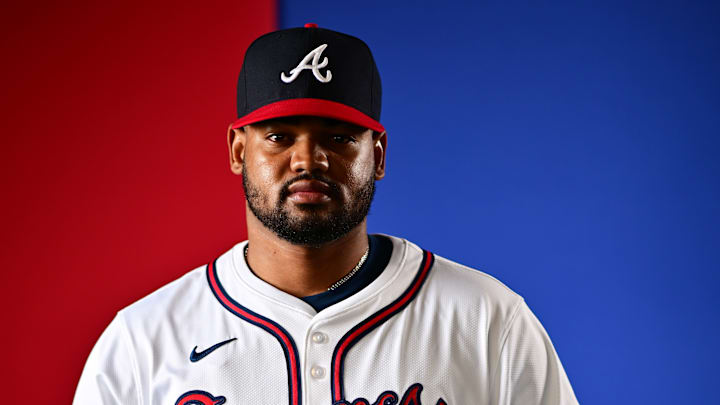2. It could lighten the load on players returning from injury
Although the jury's out on whether a six-man rotation can limit injuries going forward, the extra rest would benefit the the two lefties in the rotations, aforementioned Chris Sale and Max Fried.
It would be disingenuous to label Max Fried as "injury prone", but his 2023 was certainly injury-riddled. The lefty spent 16 days on the IL after straining his hamstring on Opening Day. Less than a month later, he went back on the IL with a forearm strain and missed nearly four months. He then went on one last IL trip to end the season but was back just in time for the NLDS.
Fried was certainly effective in the innings that he did pitch, achieving a 1.9 fWAR in less than 80 innings, That is nothing to scoff at – but whether he can stay healthy in what might be his final year with the club is certainly at the forefront of many minds.
Chris Sale, of course, hasn't had a healthy season since 2017 and the Braves are far more inclined to save his innings for the latter half of the season if given a choice.
Using six starters to begin the season could help limit the wear and tear on the two lefties and preserve them for a potential postseason run.
Chris Sale's first #Braves action:
— Grant McAuley (@grantmcauley) February 27, 2024
2 IP, 0 H, 0 R, 0 BB, 4 K
Fastball sat 94-95 mph and touched 97 mph. He struck out the side in the 2nd inning.
Not a bad ST debut.pic.twitter.com/HNzT2ccvCy
3. The Braves bullpen can handle the innings
One side effect of a six-man rotation is one less arm in the bullpen. For most teams, this could be a huge problem. For the Braves, it probably isn't.
ZiPS projects the bullpen to be worth roughly 5.0 WAR, and the first eight relievers including Reynaldo Lopez, who would be in the rotation in a six-man scenario, are projected to be at least league-average by ERA+, making it one of the deepest pens in the game.
Even with Raisel Iglesias, A.J. Minter, and Pierce Johnson repping the back end of the bullpen, the Braves will still have Joe Jimenez, Aaron Bummer, Tyler Matzek, Dylan Lee, Ray Kerr, and Jackson Stephens as options to cover the middle innings (and early innings, if necessary).
